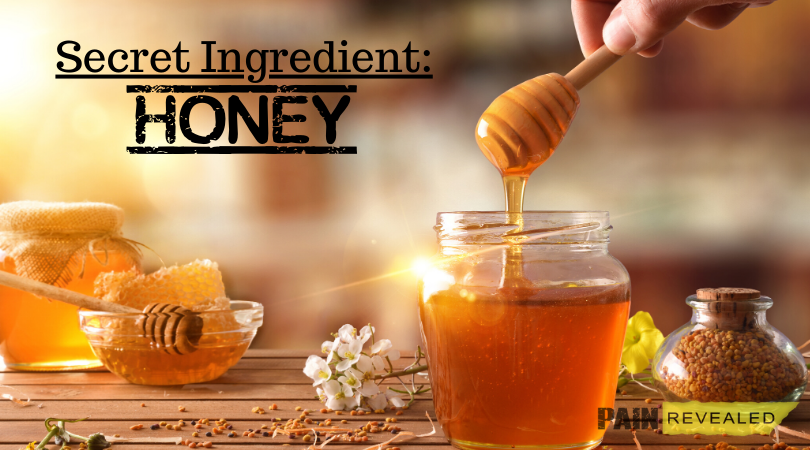Bees are fascinating and complex creatures with an elaborate social structure and the ability to make delicious nectar that people have prized since ancient times. Mankind’s relationship with bees goes back to the earliest days – from mentions in the Bible to jars of honey being found in Egyptian tombs.
The world depends upon the work of bees to pollinate countless plant species every day. They make their way from flower to flower, collecting not only the pollen, but the healing essence of each plant they touch.
The resulting honey is not just sweet and delicious, but it is an allergy fighter, an anti-inflammatory, and an antimicrobial. Raw, unfiltered honey has long been used to heal wounds, cure illnesses, and fight allergies. Additionally, it’s very high in antioxidants, is antiviral, and is high in live enzymes.

We learned so much more about bees and their products when Dr. Patrick Gentempo talked to Carli Stein of Beekeeper’s Naturals for our companion series, Supplements Revealed. Carli’s dedication to bees began with her own health struggle – she has an autoimmune condition that does not allow her to take antibiotics, and any illness for her usually turned into an ordeal.
While studying in Italy as a college student, Carli came down with strep, and an Italian pharmacist gave her bee propolis, another healthful bee product. Not only did it work like a charm – it changed the course of her life.
Today, Beekeeper’s Naturals has hundreds of thousands of bees and hives all over the world – many in Canada. They practice sustainable beekeeping and go to places with low to no pesticides to help the bees be healthier and not pass along pesticides in the products.

Canada is perfect for beekeeping because they have stronger pesticide regulations and large areas of landmass with a very low population. They also make sure that there is a rich variety of foliage for the bees to pollinate and try to stay away from mono-crop areas.
Explaining bee propolis, Carli states, “you can think of it as the immune system of the hive.” Bees line the hive and honeycomb walls with it and give it to newborn baby bees. If a predator gets in the hive, they sting and kill it, then mummify it in propolis because they are unable to carry the body out.
“In the hive, it’s used as the protector, the medicinal agent – the healer – and for humans, you can really use it in the same way,” she adds. She further explains that the medicinal use of bee propolis goes back to at least 300 BC, “We’ve been using propolis long before the advent of modern medicine. If you look at how propolis works in the body, it’s antiviral, antimicrobial, antifungal, and antibacterial. So, it is a really great alternative to more chemical-based solutions that we use to heal.”

Another bee product that Carli spoke to us about is bee pollen, “Bee pollen is really wonderful for energy-boosting, for building endurance, and for protein. There’s actually more protein per weight than any animal source in bee pollen.”
She went on to explain, “I like to think of it as a natural multi-vitamin, and it’s a little more bioavailable than the typical capsules we take. I love to get all the nutrients that we need from food than from things that can be hard to digest.”
Whether you are a fan of honey or are ready to venture out to bee propolis and pollen, look for raw, unfiltered, clean products. In bee product based supplements, look for evidence of purity testing, batch testing, and guaranteed manufacturing standards.

To help your body cope with allergies, take a tablespoon twice daily of raw, unfiltered, local honey.
For a sore throat, make a gargle using ¼ cup of warm water, a pinch of sea salt, a teaspoon of honey, and a teaspoon of fresh lemon juice.
For tooth or gum pain, rinse your mouth with a glass of warm water and a spoonful of honey – this will help ease inflammation until you can get in with a dentist.
Some people swear by Manuka honey taken daily to ease inflammatory disease conditions.

